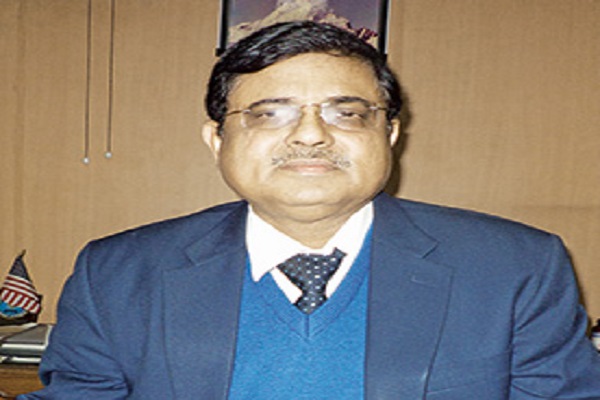
There is a definitive link between drug trade and trans-border terrorism, and Narcotics Control Bureau keeps a watchful eye to foil the sinister designs of the anti-national forces, says B B Mishra, Deputy Director General, in a tête-à-tête with Gautam Debroy of Elets News Network (ENN)
Tell us briefly about formation and role of the Narcotics Control Bureau (NCB).
There was need for creating a central agency, which could work as a nodal agency for handling all drug-related activities. The Narcotics Control Bureau (NCB) was created in 1986, following legislation of the Narcotics Drugs and Psychotropic Substances (NDPS) Act in 1985. Since it was a special law, some special actions were required to deal with drug-related activities. The primary aim was enforcement of drug laws across the country.

Initially, it was created under the Department of Revenue, and subsequently in 2004, it was shifted to the Ministry of Home Affairs (MHA). It was done following the perception that there was a strong relation between drug and terrorism, and the Home Ministry could handle both.
We are a nodal agency and prepare data for the whole country. Further, we advise the government on various issues and suggest them the required changes in the Act.

At the headquarters, we maintain liaison with the liaison officers of the drug-trafficking-affected countries because drug is a problem that persists in almost all the countries. Proper liasoning is a must to counter this menace. We have drug liaison officers of Australia, the USA, Canada, the UK, France and Germany, and they are based in Delhi. So, there is a regular contact. We exchange information and based on that, we act and go after the traffickers.
NCB also functions as an enforcement agency through its field units located in Mumbai, Delhi, Kolkata, Madras, Varanasi, Jodhpur, Chandigarh, Jammu, Ahmedabad, Imphal and Thiruvananthapuram.
Which are the major drug-prone areas in the country?
The problem is very acute in certain parts of Punjab because it shares its border with Pakistan, a country where drug trade is widespread. Manipur is the other state where the problem is severe. Many metro cities like Mumbai, Bangalore, etc., are also affected by the drug menace.
What kind of responses you get from neighbouring countries like Pakistan, Bangladesh, Sri Lanka, etc., following your liaisoning exercise with them?
These countries don’t have their liaison officers in India, but we keep organising annual meetings with them. DGlevel talks with Pakistan, Myanmar and Bangladesh, where the top brass of the Narcotics Department exchange their ideas and information, are held at regular intervals. Such meetings help us a lot in countering the menace.
Also, through such meetings, we come to know about their (neighbouring countries) concern. For instance, Bangladesh is quite concerned about cough syrup having opium composition, which is being smuggled from India to Bangladesh. When we get such information, we act against it.
As drugs and terrorism are interrelated, do you feel that Northeast insurgents based in Bangladesh could use drugs to purchase arms?
We don’t rule out this possibility, although we don’t have any evidence to substantiate that. Nonetheless, the possibility still persists, as it happened in Northern parts of the country. There is a definite similar link with the drugs coming from Pakistan side to Uri. In fact, some arrested people revealed existence of such connection. So, on the western border it is very clear.
In the East and Northeast, we don’t have any such evidence, but we do have evidence where extremist groups support cultivation of poppy.
On the Western border, the problem is different from the Eastern border. As per the United Nations Office on Drug and Crime (UNODC) estimate, about eight tonnes of heroine produced in Afghanistan comes to India via Pakistan. Going by the number of seizures, mostly it happens either in Punjab or in Jammu & Kashmir.
How is your relation with the border guarding agencies, like the Border Security Force (BSF)?
In Punjab, most of the seizures have been done by BSF. There is at least one seizure every week from along the Western border by BSF. Problems of pharmaceutical medicine being abused also persist along the Western border.
On the Eastern side, we have Bangladesh. The government as well as the law-enforcing agencies are mainly concerned about cough syrup. While in Western region, it is BSF, who do all the seizures, along the Bangladesh border, it’s not only BSF, but also Customs, NCB, Directorate of Revenue Intelligence (DRI), who go after the drug-traffickers.
What is the extent of use of the Information and Communications Technology (ICT) in your department?
We make good use of the Information and Communication Technology. We keep ourselves updated on the latest inventions in ICT. It not only helps us in doing our job faster, but also helps us in tracking down the criminals wherever they are. Ironically, people involved in illicit drug business also take advantage of the ICT. They often indulge in internet pharmacy, i.e. sale and purchase of drug takes via internet.
We make good use of the Information and Communication Technology. We keep ourselves updated on the latest inventions in ICT. It not only helps us in doing our job faster, but also helps us in tracking down the criminals wherever they are
How much cooperation do you get from the state police forces?
We get good cooperation from the state police. When we work together, our results are better. Whenever we ask for manpower from the state police forces, they provide us. The states are equally concerned about illicit drug business.
Be a part of Elets Collaborative Initiatives. Join Us for Upcoming Events and explore business opportunities. Like us on Facebook , connect with us on LinkedIn and follow us on Twitter, Instagram.











